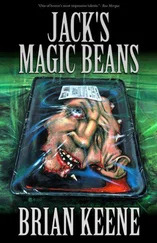Here there was a knock at the door, and I wondered, who could it be? It was you, and you were asking about beans. I’d understand if you’d been asking for directions, how to get out of here, which way to go. Or which cabin is Mr. Robert’s, because you want to stay there, then I would have shown you, it’s that one over there, and told you where the key is. But you must admit, the fact that you wanted to buy beans from me could have made me suspicious. What if I hadn’t had any? Besides, you were convinced I wouldn’t. You didn’t think you’d be at my place long. Don’t deny it. I even wondered, do I have any or not, because maybe this much life would have been enough. It was just that I’d noticed how you remind me of someone. Especially in that overcoat and hat, we must have met before, even if only by chance. Do I have any or not, yes or no, I started scouring my memory. But memory is like a well, the deeper you go, the darker it gets.
Forgive me for asking, but how would you define chance? Why do I ask? Because one time, when I was living abroad I was on my way to rehearsal one afternoon, and I see someone coming toward me who actually looked a little like you, now that I’ve gotten a good look at you. We hadn’t yet crossed, there were still a few yards between us. I might not have noticed him at all, but all of a sudden he tipped his hat and nodded to me. Or maybe I was the first one to nod, because I’d seen him smile at me and raise his hand to his hat to tip it, and I wanted to beat him to it. Besides, it makes no difference whether it was him or me. And like that, him raising his hat over his head, me raising mine, and smiling at one another in the conviction that we knew each other, we passed.
But the moment we crossed, I turned around to look at him and I saw he was staring at me also. Where we’d met and when, I couldn’t recall. Nor could he, because why would he have looked back at me if he’d remembered when and where. I walked on a few steps and turned again. Believe it or not, he had also turned back again. I decided to go up and ask where we knew each other from. At that exact moment he also started towards me, with the same intention as it transpired. We walked up to one another, raised our hats again, but I see he’s a little embarrassed, and I’m disappointed, because we can both see we don’t know one another.
“I’m terribly sorry,” I said. “I don’t believe we know each other.”
“I’m afraid I don’t remember you,” he replied.
“Oh well, just an unfortunate chance. It happens. Once again I’m very sorry.” I raised my hat again and was about to walk away. But he held me back.
“It isn’t chance, my dear sir,” he said. “There’s no such thing as chance. After all, what is chance? No more than a justification for what we’re unable to understand. So we shouldn’t part like this. Let’s at least go get coffee. On me. See, we’re even standing outside a cafe. They have good coffee here. I stop by sometimes.”
The coffee was indeed good. But the conversation never took off. Especially at the beginning. I barely said anything, I mean, what was I supposed to talk about with a person I’d mistaken for someone else. So I gazed around the cafe, though there wasn’t much to look at. It was just a regular cafe. Not that big, a dozen or so tables, rather dimly lit. I don’t like dark cafes. The lower half of the walls had dark wood paneling, the top half was wallpapered in dark gold. The tables seemed too bulky for a cafe. The backs of the chairs were almost as high as your head, and the chairs themselves weren’t especially comfortable. The only thing I liked were the wall lamps and the chandelier that hung from the ceiling. Each wall lamp was in the form of two female figures holding candlesticks in their outstretched hands, and there was a candle in each one, as if there were no electricity. Each lamp had women from a different historical period. The chandelier also was not electrified, it was filled with real candles and decorated richly with cut glass in different shapes.
He noticed me looking around the cafe, and began to tell me about it. Hardly anything had changed here since the cafe first opened, he said. He mentioned the year, I don’t remember exactly when it was, but the place was almost two hundred years old. The tables, chairs, lamps, chandelier, paneling, even the wallpaper was the same color and pattern as two centuries ago. And the candles were lit at dusk just the same. This wasn’t only known from descriptions, he said, there were photographs, and a number of paintings of the interior. One artist had gathered all the famous personages who had come here over those two hundred years, as if they’d all come by and taken a table on a single day and at the same time. He mentioned some of them by name, though without telling me what they were famous for. He probably assumed I would know. But at that time none of the names meant anything to me.
At some of the names he lit up as if he used to meet with them here himself, though they’d lived fifty or a hundred years before, or even earlier. He knew a lot about them. In many cases he knew who used to sit at which table. And if they’d been alone or with someone. Whether they drank coffee or tea, or if they preferred wine, and what kind. Which cakes they most liked, or if they didn’t like cakes.
There’d also been someone who used to sit at the table we were at. It was the first time I’d heard the name. You knew him? So you know what work he did. That was the only name that stuck in my memory, of all the ones he mentioned. Maybe because, like you just said, he worked on dreams.
Later I bought a book about those dreams of his. We could find ourselves in there too. You, me. Anyone. Supposedly they were just his dreams, but really they were dreams about people. Apparently he would come to the cafe every day. And always at the same time. No more than a minute earlier or later. You could have set your watch by him. Actually, he’d always take out his pocket watch and check whether he’d arrived punctually. And everyone else in the cafe would take out their watches and check they were running right. Some days he’d drink coffee after coffee, especially when he was making notes on a paper napkin. Other times he’d only ask for a glass of water as he sat there lost in thought.
“Was he waiting for someone maybe?” I asked, trying to show I was listening.
Because you have to agree that when you don’t arrange to meet someone but you want to see them, then every day at the same time you’ll go to the place where you usually meet with them. As if the place itself were capable of making them appear. It’s a mistaken belief, that places are more constant than time and death.
“That I don’t know,” he said. “Waiting is a permanent condition within us. You know, often we don’t realize that from birth to death we live in a state of expectation. He’d probably grown attached to the cafe, this table. Those kinds of attachment are often stronger than to other people.”
I didn’t say anything. I simply didn’t understand that anyone could get attached to a cafe, let alone a table.
So when he came into the cafe and saw that his table was occupied, he’d leave right away, even if other tables were free. The proprietor would have to send him an apology and assure him it would never happen again. He was even capable of scolding whoever had taken the table. Once he struck the table with his cane. Two young people were sitting at it, it may have been the first time they’d been in the cafe and they had no idea it was his table. Besides, like all young people, the world still belonged to them, including some table in some cafe or other. So they refused to move to another table, why should they. Everyone knows that cafes are for everyone and that anyone can sit at any table they like. Whoever sits there first, it’s their table. And here someone was claiming they’d occupied his table. If I were them, I’d not have moved. Maybe if he’d asked politely, said that he couldn’t sit at any other table, because the coffee or tea would taste different. That I’d understand. But he evicted them from the table like he was throwing them out of his own apartment.
Читать дальше












